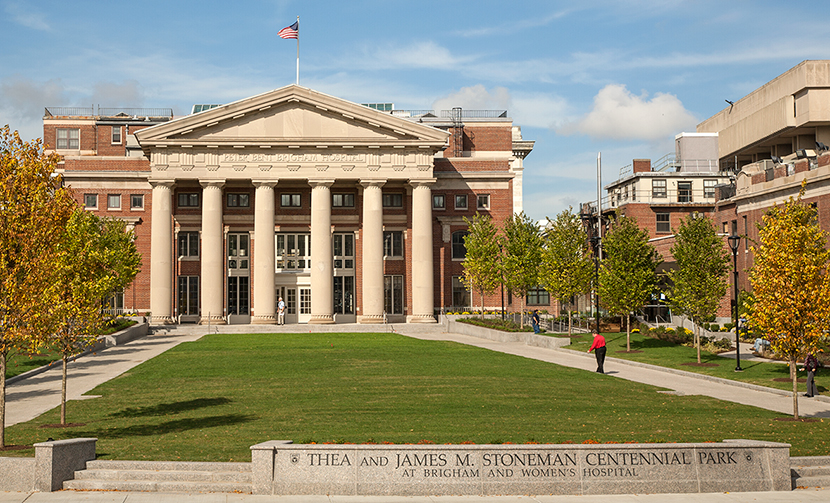
Dr. Anthony Whittemore, a Brigham surgery giant, passed away peacefully on August 14, 2024, after a long illness. He was born and grew up in Boston and attended Trinity College. Influenced by the premature death of his father and older brother, he chose a career in medicine. Determined to break away from Harvard, where most of his family attended college, he attended Columbia University School of Medicine and completed his general surgery residency. He became interested in vascular disease working with early cardiovascular surgery pioneers such as Dr. Arthur Voorhees. Upon completion of his residency, in fulfillment of his obligations under the Vietnam era Berry plan, he spent two years as a naval surgeon at the Portsmouth Naval Hospital. There he focused his practice on peripheral vascular disease management.
Upon completion of his Naval obligation, he was recruited by Dr. John A. Mannick to the newly formed Brigham and Women’s Hospital. He served as the first Homan’s Fellow in Vascular Surgery. Early in his career at the Brigham, he established himself as a true academic triple threat. He was an expert clinical surgeon who took on the most complicated vascular surgery cases. Dr. Whittemore held unparalleled technical skills and quickly established a national referral pattern for complex lower extremity occlusive disease, aneurysmal disease and cerebral vascular disease.
Following in the footsteps of his mentor, Dr. Mannick, he became a prolific and effective surgical investigator. His NIH funding focused on the prevention and management of intimal hyperplasia in arterial reconstructive surgery. In collaboration with investigators from Harvard Medical School and MIT, his pioneering work on retroviral transfection of smooth muscle cells to mitigate their response to injury helped establish a line of research that continues to this day. His vast clinical research contributions in virtually all aspects of arterial reconstruction continue to guide peripheral vascular disease management.
Throughout his career Dr. Whittemore was a revered and dedicated educator of medical students, general surgery residents and vascular surgery fellows. His teaching focused on both the art and technical science of arterial disease management. In the operating room he showed uncommon trust with residents and fellows and gave them the confidence to grow in a supportive environment. The many Homans Fellows that he directly mentored have gone on to successful academic careers as vascular surgery division chiefs, surgery department chairs and deans. In our department he served as the general surgery program director, vascular surgery program director, chief of Vascular Surgery and vice chair of the Department of Surgery.
Dr. Whittemore viewed challenges with an open mind and as opportunities for change. At a time when specialties were fighting for clinical turf, he was instrumental in bringing Cardiology, Interventional Radiology and Vascular Surgery together into a Vascular Center dedicated to patient- focused care of peripheral vascular disease. Similarly, on a national level, Dr. Whittemore played a leadership role at a time when vascular surgeons were struggling to develop an identity independent from general surgery. He spearheaded the development of the Vascular Surgery Board of the American Board of Surgery. This, for the first time, gave vascular surgeons control of the training, testing and continuing education of vascular surgeons.
In recognition of his myriad contributions, Dr. Whittemore was recognized as the president of the Boston Surgical Society, the New England Society for Vascular Surgery, the International Society for Cardiovascular Surgery, and importantly, as the president of the American Surgical Association.
In the last decade of his career Dr. Whittemore became increasingly focused on patient safety and quality of care. He transitioned to the position of chief medical officer at the Brigham and played a major role in rebuilding the trust between the hospital and medical staff, and navigating the construction of a closer, formal relationship between the Brigham and the former Faulkner Hospital. Among his many contributions were the adoption of a bar coding system for medication dispensation (reducing medication errors nearly 50%) and development of the Center for Professionalism and Peer Support. As with his role in surgery, Dr. Whittemore mentored many young hospital administrators, stressing the critical importance of interpersonal relationships in effective hospital administration.
He is survived by his wife Rhodie and their three children. He was an avid sailor. His private moments include time in Marion, where Dr. Whittemore and his wife would watch sunsets and tell stories on their aft deck.
Dr. Whittemore’s impact on a generation of general and vascular surgical trainees will serve as an enduring legacy for us all. He will be missed.
